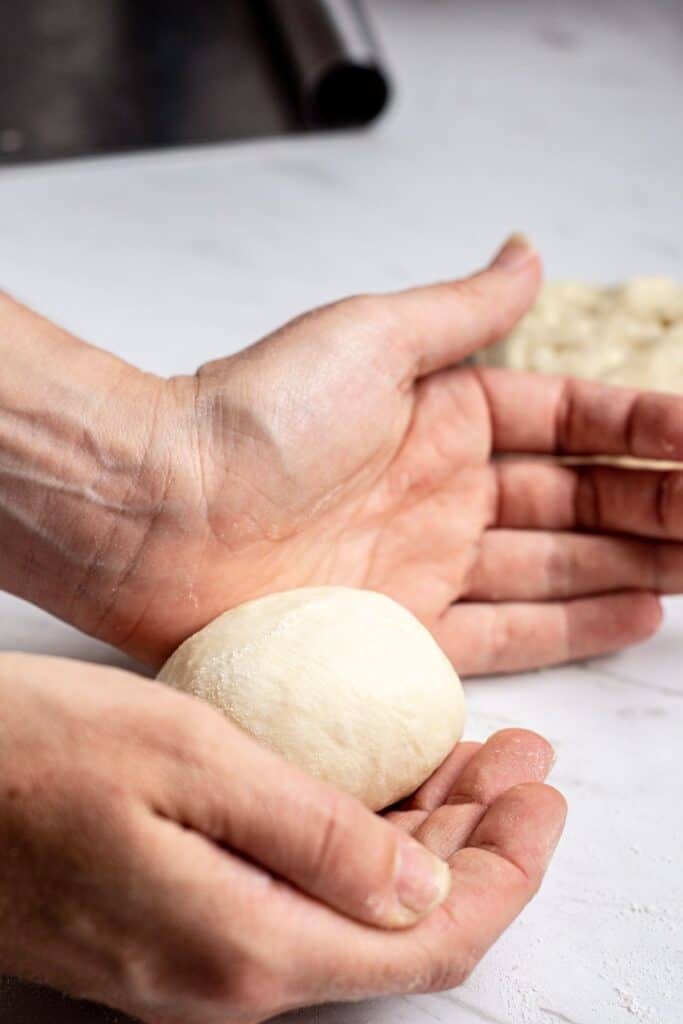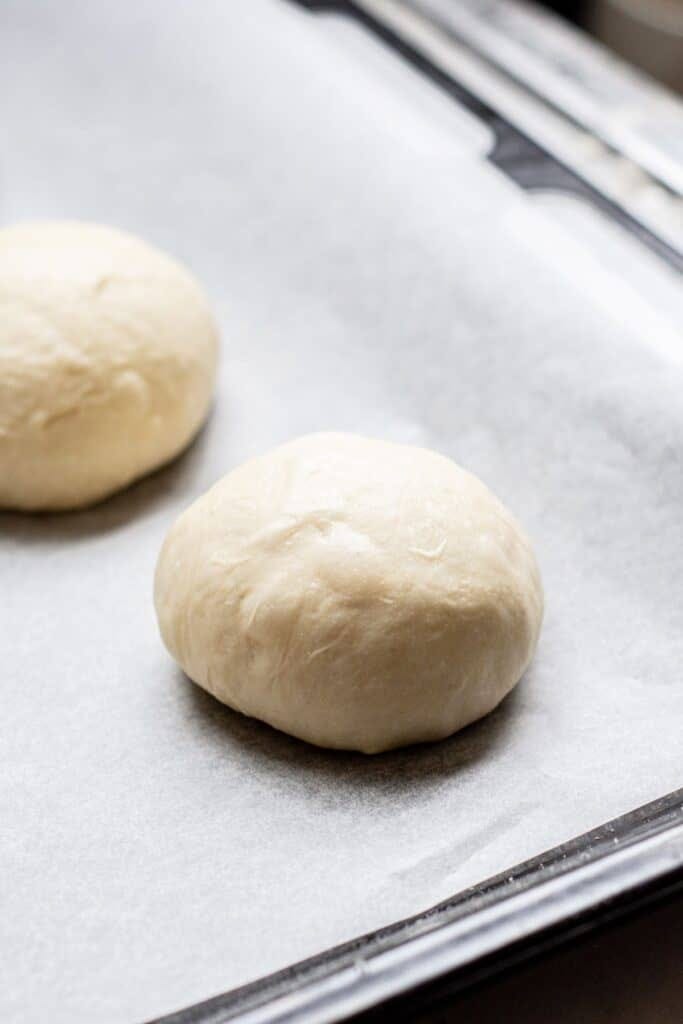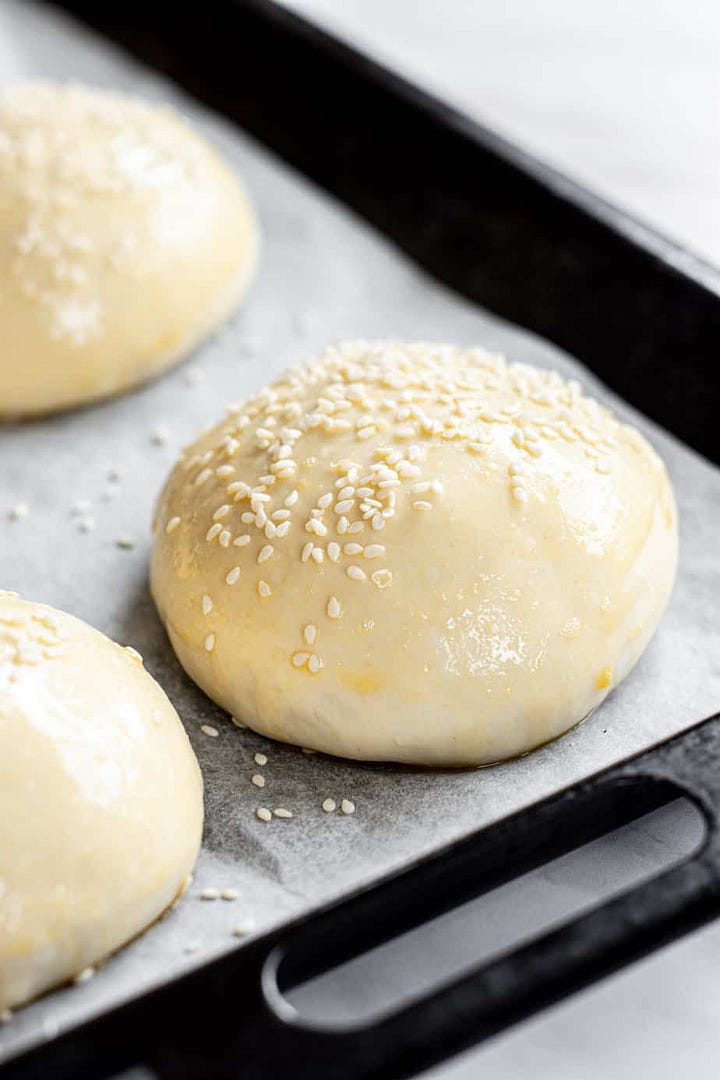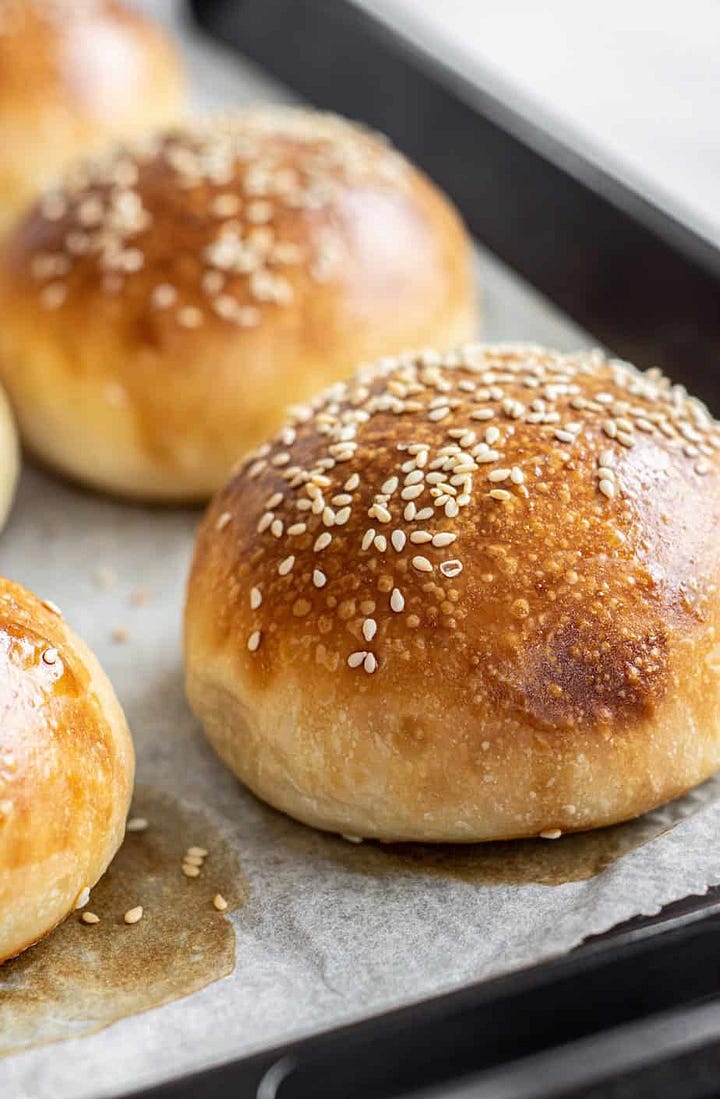Sourdough Burger Buns
These sourdough hamburger buns are light, fluffy, and perfect for all your burger creations. Making them is very simple, but they do need time for the dough to rise and develop flavor. The actual schedule can change though depending on what suits you.
Sometimes I make the dough the day before, give it a first rise then cold-proof it overnight. The following day, I will shape the burger buns, let them rise again, and bake them. Other times I will make the dough in the late evening, let it rise overnight at room temperature and then shape the buns the following morning.
Starter note: I usually make a seperate levain for my bread, which is like an offshoot of my starter that I feed to add the whole thing to my dough. If you feed your starter differently, though, no worries, then use around 100g of your active starter in the dough.
The dough is enriched with milk and a little butter, which helps keep the buns soft and tender. It’s a bit of a sticky dough - the extra hydration makes a lovely soft bun, but not so much that you can’t mix it by hand.
Sourdough Hamburger Buns
Starter (Levain)
40g starter
40g all-purpose flour
40g water
Burger bun dough
450g all-purpose flour or bread flour
20g granulated sugar
8g salt
150g water
140g whole milk
All the sourdough starter (around 100g)
50g unsalted butter, room temperature
Egg wash and topping
1 large egg
1 tablespoon water
Sesame seeds
Method
Feed your starter so it can rise and double.
Once doubled, add flour, sugar, and salt in a large bowl. Add water, milk and sourdough starter and mix into a shaggy dough. Tip this dough onto a workbench and use a slap-and-fold kneading method to bring the dough together. Knead it for 5 minutes to begin developing the gluten. Fat can coat the flour particles, inhibiting gluten formation, so I like to give the gluten a head start before adding the butter.
Add in the cubed butter, a few cubes at a time, and knead them in. The butter will make it sticky, but the dough will already have some strength from the previous kneading. Continue slapping and folding for a further 3-4 minutes until smooth (but still a bit sticky.) This can also be done with stand mixer and dough hook.
Overnight fridge proof: Add the dough to a lightly greased bowl, cover it and let it rise until it has almost doubled in a warm spot (ideally around 25°C/77°F) for 3-4 hours. You can create a warm and humid spot by placing the dough into a turned-off oven alongside a large cup of boiled water. Replace the water as needed when it cools down. After this period, tightly cover the dough so it doesn't dry out and refrigerate overnight.
No fridge proof: If you’re skipping the fridge proof, make the dough and let it double in size at room temperature, then move onto the shaping steps.
Shaping
Punch down the dough and pull onto a lightly floured work surface. Shape it into a dough ball and weigh it on a scale. Divide the total weight of your dough by 9. That's how much dough is needed for each bun.


Shape each piece into a tight ball and place on a parchment paper-lined baking tray. Dip your fingers in water and use them to gently flatten the dough ball slightly. This will help to make a wider bun. Loosely cover and leave the buns to rise for approximately 2-4 hours in a warm spot until they have about doubled in size.
Preheat the oven to 200°C/400°F.
Lightly beat an egg with a tablespoon of water. Brush this over the buns. Sprinkle them with sesame seeds.
Bake for approximately 22-25 minutes until they are deep golden brown. Let the burger buns cool on a wire rack.


Happy baking!




